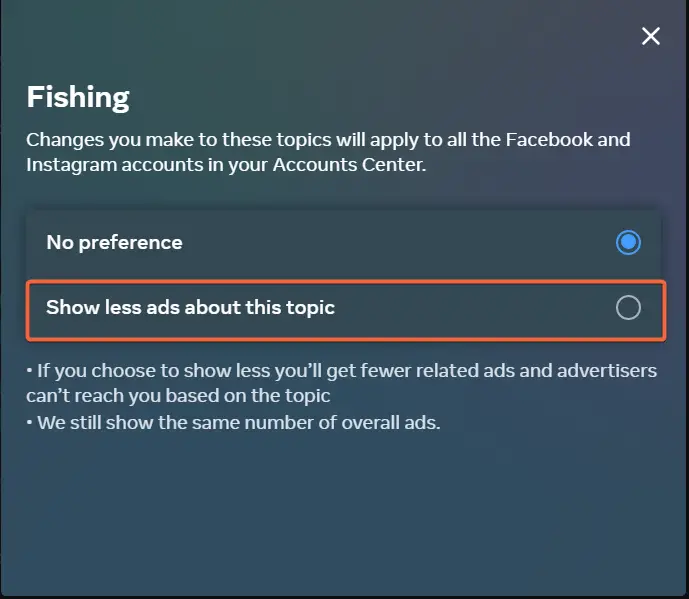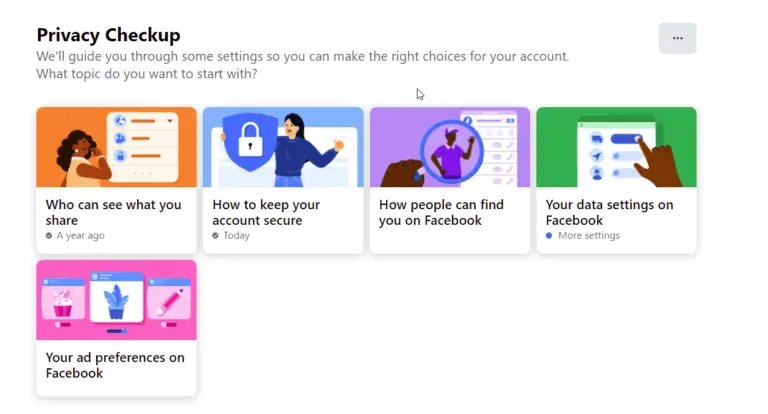Facebook security settings determine the protection of your account. Secure log-in is what many non-techy users prefer!
Social media can be beneficial and bane at the same time. Facebook is one app and site that has friends list in one place.
Location of log-in and device helps the true identity. The Facebook profile has many features like phone number, email address, birthday, pages, groups, education, jobs, married status, number of friends, and many others.
On improving security, Facebook guards your secrets and friend’s private information. The settings page provides many options to set the desired privacy goals.

Facebook Security Features
Enable location services on mobile devices to build a history of precise location. Only you can see this information and can delete it if required.
Facial recognition helps to identify you in a photo or video. Deny this permission if you think it is annoying.
However, privacy shortcuts allow you to manage you profile. Personal data is of utmost importance while using social media.
Search engines discover your profile easily if you grant access.
Facebook Security and Login
Facebook security’s first line of defense is to have powerful log in protection.
The social media giant has made this easy with recommended security settings for login.
Strong encryption of password, two-factor authentication, and login alerts are the key guidance factors.
Recommended Security Settings
To know where you are logged into Facebook, the security settings display the device and location. This way, you can confirm whether it’s you or somebody else trying to snoop into your account.
Create a strong password if it’s weak by changing the old to a new password.
Save login info on browsers and devices you trust. In this way, only trusted devices will be able to open your Facebook account.

Multifactor Authentication
Two-factor authentication enables verification code through SMS or third-party authenticator apps.
It is the simplest form of double security in addition to a solid password. Recovery codes help to get back your Facebook account in case of any fraud.
Authorized logins give a list of devices where you need not enter the two-step verification code.

It saves time and also improves reliability. Instead of using Facebook password log in details to log in to apps, use special app passwords.
Extra Security
Set up additional security for Facebook login through alerts and contact list. You can use Messenger and Facebook to notify you when a violator tries to log in to your account.
If your security is cracked and you are locked out, choose 3 to 5 friends to log back in.
Additional Security
Advanced security makes sure that you are the right person using your Facebook account.
Notification emails from Facebook are encrypted and thus prove the authenticity of the source. Recover access to other sites using Facebook accounts.
See the activity of emails from Facebook source to make sure that it’s the social network giant sending the notifications.
Why Facebook Secure Login is Required?
Facebook settings window allows putting your log in safe hands.
You can also increase mobile app security by seeing the device log-in. Facebook activity not just limited to sharing posts.
Unlimited images, videos, personal and business data shared from time to time. You can easily see new device log-in in the security settings. Limit past posts setting helps to share with only people you trust.
You can share Facebook information with the public, friends, friends of friends.
Someone hacked my Facebook – What do you do?
Location settings decide the place and device from which you log in to your Facebook account.
Select security as the primary motive for using any app or site in 2021. Tap settings to set privacy and security.
On the left column, you see security and log-in. New friend requests made from anonymous friends, who can be hackers too.
The Cambridge Analytica scandal has made Facebook privacy and anonymity less secure.
Recommended
- Check your Important Security Settings
- Click on View
Have a strong password, enable two-factor authentication and log-in alerts.
Is your Password Private?
Account compromised if Facebook password used elsewhere. To make sure you and your friends are safe, choose a strong password.
The following tips help in choosing a secure password.
- Choose a password that you don’t use anywhere else online.
- Make it easy for you to remember but difficult for others to guess.
- Never share your password with anyone.
Manage the settings from here.
Where you’re logged In
See list of devices logged into Facebook. It includes previous sessions.
You might have logged into your account from different computers, tablets, smart devices, mobile phones, and laptops. Log in history is useful.
If you suspect any foul play, you can always log out from all the sessions. Otherwise, you can log out from each device.
Change Password
It’s always a good idea to change your password from time to time.
In addition, having a strong and secure password will implement the right safe strategy for your Facebook security settings.
First, click on Edit to enter the old password. Then enter the new password two times.
Save your log-in info
You can decide on comfort or security. If you frequently use Facebook on the same browser and device, you can save the log-in information. When you log in to the same device’s browser password not required .
But if too many people are using the same user account on Windows 10, they might see your browser log-in sessions. It will also automatically take them to your Facebook account. In that case, it is better to enter a password each time you log in to Facebook.

This browser
Remove the saved account. Then you will need to enter the username and password each time manually.
Other Devices and browsers
Using an Android phone with a Facebook app? Then you might have stored the credentials.
A different browser and different device may also have the details stored. All listed here. You can remove them all from this Facebook security setting.
Facebook Security Settings – Two Factor Authentication
Verification code and password used to identify unrecognized device or browser.
It is the common form of double protection for all user accounts. Facebook also provides 2FA security.
Third-party authenticator app used to secure Facebook log in. When log in activity compromised and not regular user logging into the Facebook account, verification code or SMS is available.
For complete details, read my other post here –
Setting up Extra Security

Get alerts about unrecognized Logins
Enable this security setting to get notification messages on Facebook, Messenger, and Email.

Any outside user logs into your account from a different device, place, and browser; then, you will be protected.
Choose 3 to 5 friends to contact if you get locked out
Click on Edit to set this Facebook security setting.
Select trusted contacts or friends on Facebook to send a code and url from Facebook when you are locked out.

It can happen due to several reasons, which include illegal activity or password change by ethical hackers.
Make sure these are your reliable friends and use Facebook frequently.
Advanced Facebook Security Settings

Encrypted Notification emails
Add extra security to notification emails from Facebook (only you can decrypt these emails)
Download the Facebook OpenPGP public key. Then, paste that key in the text box above.

You can change the security settings to share this key on the Contact and Basic info about page.
In this way, only you can decrypt the notification emails that Facebook sends you. It’s double layer protection for password security-related notification emails.
Recover external accounts
Recover access to other sites with your Facebook account
On some sites and apps, Facebook account username and password are used to gain access.
Here, the list of all those sites and apps is given. If there is any problem with sign-in authentication or some problem arises, it can be solved here.
You can also remove that account if that app tries to access more personal information than required.
See recent emails from Facebook
See a list of emails we sent you recently, including emails about security.
Facebook sends some official emails to users related to your activity, browsing history, and sessions.

You can be sure whether the email is fake or authenticated by checking the email history here.
Also, all the email related to security and official information is listed here. So, you can be sure that it’s Facebook sending the emails and not some hacker group.







